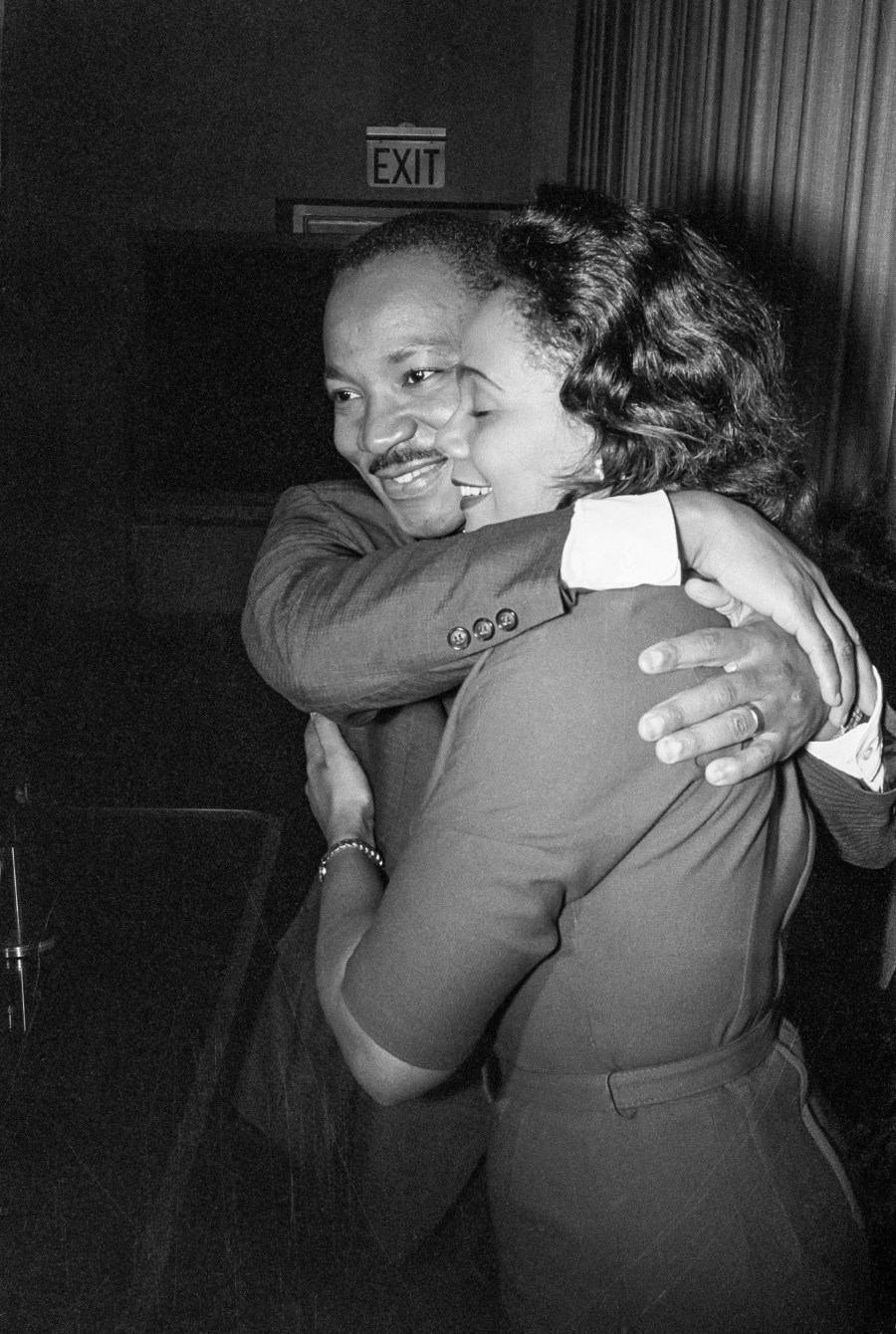In his first interview since his misdemeanor convictions for assault and harassment, actor Jonathan Majors took a moment to perpetuate a long-standing myth about Coretta Scott King. Speaking to Linsey Davis for “Good Morning America,” Majors praised his current girlfriend, actress Meagan Good, as behaving “like a Coretta,” his shorthand for a supportive partner.
If Majors thought he was paying the ultimate compliment, then he was sorely misguided.
If Majors thought he was paying the ultimate compliment, then he was sorely misguided. His description of Good revealed his limited understanding of the life and legacy of the person he unwisely compared her to. And just as troubling, his statement minimized the important role Coretta Scott King played in shaping U.S. history.
Coretta Scott King was an ardent civil rights and human rights activist in her own right. She was much more than the supportive wife of the Rev. Martin Luther King Jr. As the Kings’ youngest child, the Rev. Bernice A. King, powerfully argued on X, “My mother wasn’t a prop…My mama was a force.”
On this Martin Luther King Day, we would do well to remember this fact.

Coretta Scott was a committed activist long before she crossed paths with her eventual husband. She was a student at Antioch College during the 1940s. She rejected racial segregation and did not hesitate to speak out when she was barred from teaching white students at a local school because of her race, and as a result became an active member of her campus chapter of the NAACP.
In 1948, Coretta Scott publicly backed the Progressive Party’s presidential candidate Henry Wallace, who advocated for the end of racial segregation, and she attended the party’s national convention as a student delegate. These early experiences set the stage for her later political work.
Her 1953 marriage to Martin Luther King certainly brought on a new set of responsibilities and its own challenges as she carefully navigated the many demands of being a wife and mother. However, she never wavered in her political work. According to historian Barbara Ransby, distinguished professor of Black studies, women’s and gender studies, and history at the University of Illinois at Chicago, Coretta Scott King “never abandoned her political beliefs or moral convictions.” She brought these values into her marriage and instilled in her children the significance of racial equity and justice.
During the civil rights movement, she supported the work of the Southern Christian Leadership Conference, which Martin Luther King had co-founded in 1957 with several other African American activists in Atlanta. She played a crucial role in helping to fundraise for the organization by organizing freedom concerts. Her efforts made it possible to keep the organization afloat and helped activists in their fight to bring an end to Jim Crow.

An ardent pacifist, Coretta Scott King was a vocal critic of the Vietnam War. As David Stein, assistant professor of history at the University of California, Santa Barbara, told me, “Not only did she take a controversial stand against the Vietnam War, she was the one who pushed her husband to do the same.”
After her husband’s assassination in Memphis in 1968, Coretta Scott King took careful and conscious steps to preserve his legacy. Only four days after losing her husband, she made the bold decision to lead a march in Memphis alongside three of their children. She continued to display her dogged commitment to advancing economic justice through skillful lobbying. As Stein explained to me, Coretta Scott King “continued to pursue economic and racial justice, which she understood as wholly intertwined, and which underpinned her work for full employment and a federal job guarantee.”
On Mother’s Day in 1968, about a month after her husband’s assassination, Coretta Scott King and members of the Poor People’s Campaign organized a march in Washington, calling for the passage of legislation that would reduce poverty in the United States. They openly denounced Rep. Wilbur Mills of Arkansas, a politician who had used his position as chair of the House Ways and Means Committee to derail welfare bills.













